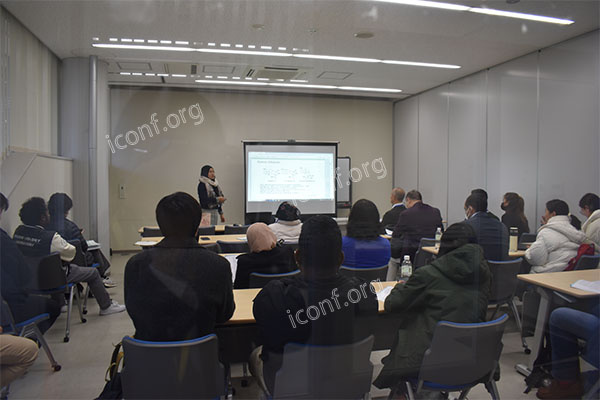

403 views||Release time: Jan 10, 2025
IEEE (Institute of Electrical and Electronics Engineers) conferences are among the most prestigious and widely recognized academic events worldwide. Known for their high standards and rigorous peer review process, IEEE conferences offer researchers a platform to present their groundbreaking work to a global audience of experts, scholars, and industry professionals. Whether you’re in engineering, computer science, or related fields, presenting at IEEE conferences in 2025 can significantly elevate your academic career.

Global Recognition and Prestige
IEEE is a globally recognized organization, and presenting at its conferences immediately enhances the visibility and credibility of your research. IEEE conferences attract top researchers, innovators, and professionals from all over the world, providing a prestigious platform for presenting cutting-edge work.
Networking with Experts
IEEE conferences are renowned for gathering leading experts in technology, engineering, and applied sciences. These events offer ample networking opportunities, allowing you to meet influential researchers, collaborate on future projects, and explore new career opportunities. Engaging with peers from around the world broadens your horizons and helps you stay updated on emerging trends in your field.
Increase Citation Impact
Papers presented at IEEE conferences are often published in IEEE Xplore, a comprehensive digital library widely accessed by researchers worldwide. This publication significantly increases the visibility of your work, enhancing the likelihood of being cited by others. A higher citation count directly boosts your academic impact and h-index, an important metric for measuring research productivity.
Exposure to Cutting-Edge Research
IEEE conferences showcase some of the most innovative and impactful research in technology, engineering, and related fields. By attending, you gain exposure to the latest advancements, methodologies, and solutions that are shaping the future of these industries. This exposure can inspire new ideas for your own research and guide your work in a more innovative direction.
Strengthen Your CV and Career
Presenting at an IEEE conference is a prestigious addition to your academic CV. It signals to universities, funding agencies, and research organizations that your work is at the forefront of your field. This recognition can help you secure academic positions, research grants, and collaborative opportunities.
Search IEEE Conference Listings
IEEE’s official website, as well as platforms like iconf.com, provides a comprehensive list of upcoming IEEE conferences across various disciplines. These platforms offer detailed information on submission deadlines, conference themes, and submission guidelines, making it easier for you to identify the right conference for your research.
Utilize the IEEE Xplore Digital Library
IEEE Xplore, the digital library for IEEE publications, often lists upcoming conferences and events. Browsing through IEEE Xplore can help you find IEEE conferences that are relevant to your research interests and provide additional resources such as previous conference proceedings.
Sign Up for Alerts
To stay updated on upcoming IEEE conferences, sign up for conference alerts. Many platforms, including iconf.com, allow you to receive email notifications based on your research areas, ensuring you never miss important submission deadlines.
Review Calls for Papers (CFPs)
Many IEEE conferences issue open Calls for Papers (CFPs) for upcoming events. These CFPs detail the themes, topics, and submission requirements for each conference. Reviewing the CFPs helps you identify which conferences align with your research and increases your chances of having your paper accepted.
Write a Clear and Impactful Abstract
Your abstract is often the first thing reviewers will see, so it needs to clearly communicate the key aspects of your research. Be concise yet detailed, highlighting your research objectives, methods, findings, and significance. A strong abstract can significantly improve your chances of acceptance.
Follow Submission Guidelines
Every IEEE conference has specific guidelines for paper submissions, including formatting, document types, and length. Make sure you follow these instructions carefully to avoid rejection. Submitting a paper that adheres to the guidelines demonstrates your professionalism and increases your chances of acceptance.
Prepare for Your Presentation
Once your paper is accepted, it’s time to prepare for your presentation. Create clear, visually engaging slides that support your research. Practice delivering your findings concisely and confidently, as this will leave a positive impression on your audience.
Engage with Fellow Attendees
Networking is a crucial part of any IEEE conference. Take the time to attend sessions, engage in discussions, and connect with fellow researchers and professionals. These interactions can lead to valuable collaborations and provide insights that can shape your future work.
Presenting your research at IEEE conferences in 2025 is an excellent way to enhance your academic profile, increase your visibility, and engage with the best minds in your field. Whether you’re looking to publish in IEEE Xplore, expand your professional network, or stay on top of emerging trends, IEEE conferences offer the ideal platform to achieve your academic and professional goals.
To find IEEE conferences that align with your research, visit iconf.com. The platform offers a curated list of upcoming IEEE conferences, complete with submission deadlines, guidelines, and conference themes. Make sure to plan ahead and submit your work to the right conferences to take full advantage of these prestigious opportunities.